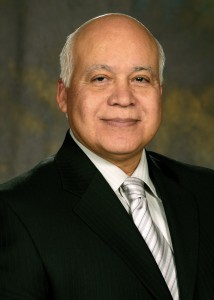
From providing resources tailored specifically to the unique needs of the Hispanic community to AARP VIVA magazine, AARP has a long history of commitment to the Hispanic community. That commitment prompted AARP to commission a study in collaboration with the National Hispana Leadership Institute and impreMedia on the impact of the economic recession in America on Hispanics 45+.
The survey data clearly shows that Hispanics 45+ are suffering – with many facing unemployment or underemployment, loss of health care and less financial security. With the knowledge that the survey results provide about the specific hardships the Hispanic community faces, AARP hopes to raise awareness of the issues and highlight resources that are available to help them through these rough financial times.
Some of the most striking statistics that AARP found in the survey are that over the last 12 months:
- 60% of Hispanics 45+ got less sleep due to stress or worry
- 43% had problems paying for essential items, such as food and utilities
- More than a third (35%) have cut back on their medications
- Twice as many Hispanics 45+ lost a job than the general population (21% vs. 10%)
- Almost one-third (32%) who did not lose their job had hours or pay cut
The survey found that in particular, many Hispanic boomers provide support for the health and basic needs of their children and their parents – serving as members of the so-called “sandwich generation” – and find themselves stretched thin as they struggle to maintain their own finances and prepare for retirement.
The importance of family in the Hispanic community is evident in the caregiving statistics: nearly one in five cared for a parent, almost one-third cared for a child under the age of 18, one in four cared for an adult child, and 16% cared for a grandchild – numbers which are all higher than those statistics of the general population.
Hispanics 45+ are making dramatic sacrifices to ensure the well-being of family members. It is alarming that 60% of Hispanics 45+ are losing sleep over financial stress, and it is clear that members of the Hispanic community are trying to find all possible ways to cut costs. One of those sacrifices has been retirement plans – with only one-third of Hispanics 45+ have a retirement plan and of those that do have one, 45% stopped contributing and 28% prematurely withdrew funds from their retirement savings.
Yes, these statistics are alarming, but by no means should we feel defeated by them. There are resources to help, and knowing what kinds of sacrifices the Hispanic community is making to support their families is essential in moving forward and becoming more financially secure. AARP offers free online resources, publications and information on events to help Americans cope with the recession –available in English and Spanish at www.aarp.org/realrelief.
Leobardo Estrada, Ph.D. of Playa del Rey, CA, is a member of the AARP Board of Directors.
Dr. Estrada currently is employed as professor of urban planning at the University of California, Los Angeles (UCLA). He has served as an advisor on national data systems to several national agencies and councils including the U.S. Census Bureau, the National Center for Health Statistics, and the National Research Council. Dr. Estrada also has experience as a social scientist with an expertise in the demography of Latinos in the U.S.
In his volunteer experience, Dr. Estrada previously chaired AARP’s Hispanic Council. He currently serves on the boards of the National Association of Hispanic Elderly, the National Association of Child Care Resource and Referral Agencies, and New Economics for Women.
Among Dr. Estrada’s numerous awards are the Kellogg National Leadership Fellow Award from the Kellogg Foundation and Lecture Awards from Baylor University and the University of Texas School of Applied Medicine. He also is the recipient of a Community Service Award from the Mexican American Legal Defense and Education Fund.

Recent Comments